Charlotte Brontë spent periods of her life as a teacher at Roe Head school near Mirfield and at the Pensionnat Heger in Brussels, and she also served as a governess to the White family of Upperwood House in Rawdon. Charlotte was far from happy during these employments, and in today’s post we will look at a very revealing letter she sent on this day 1848 in which she looks at the roles of teachers and governesses.
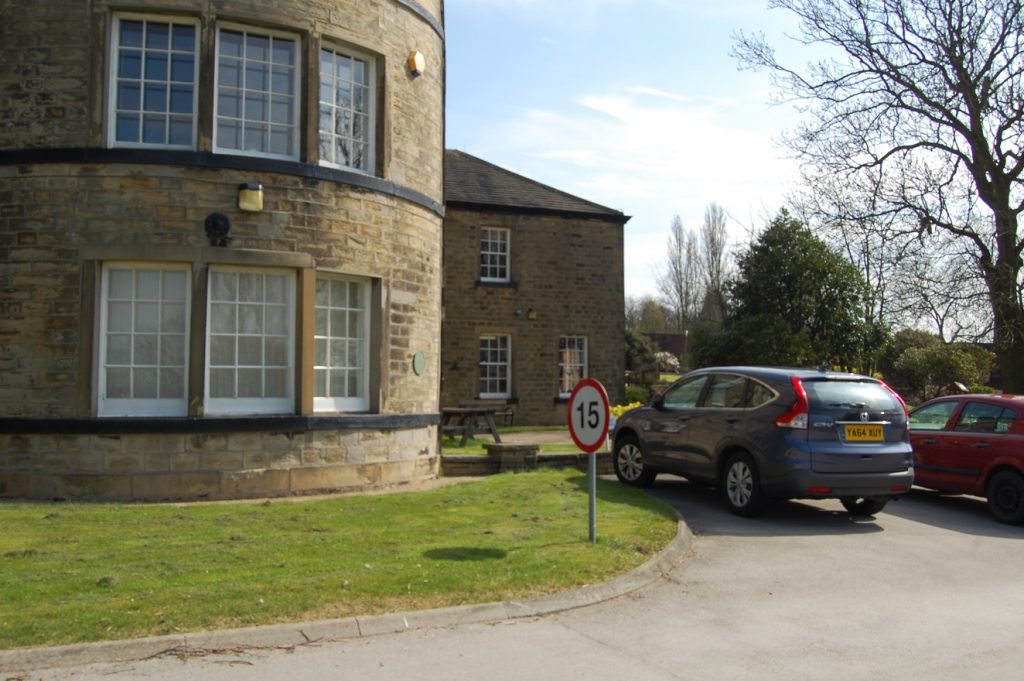
The letter was sent to W. S. Williams of her publisher Smith, Elder & Co. It touches upon Charlotte’s hit novel Jane Eyre, the portrayal of a governess within it and the reality of life as a governess or teacher:
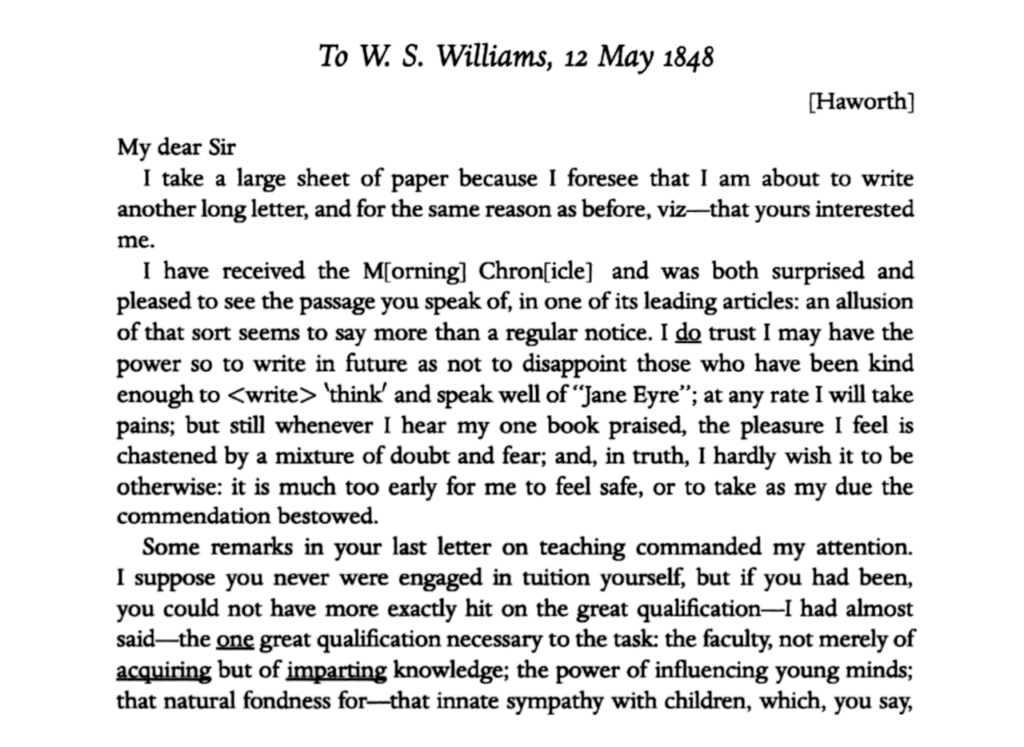
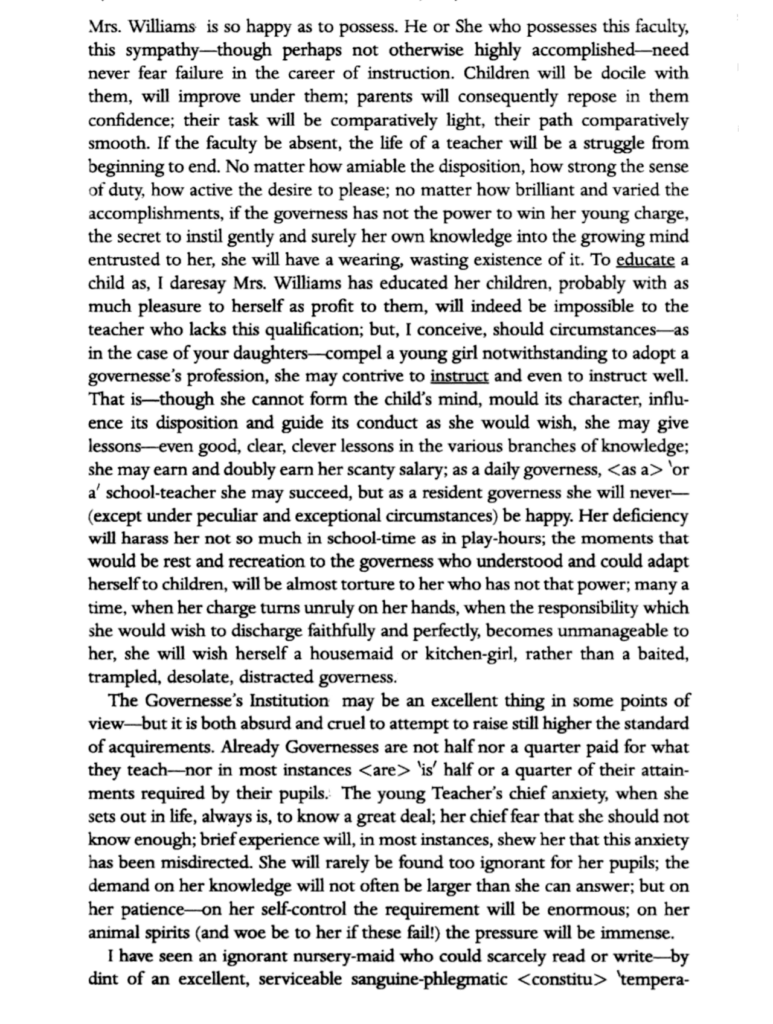
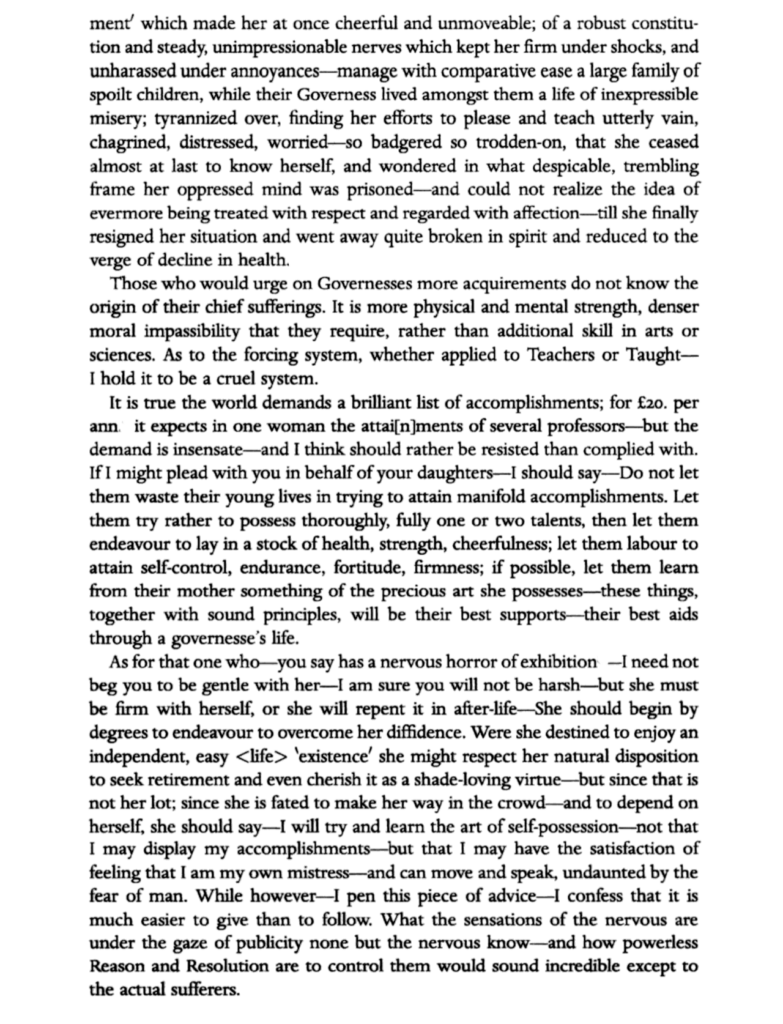
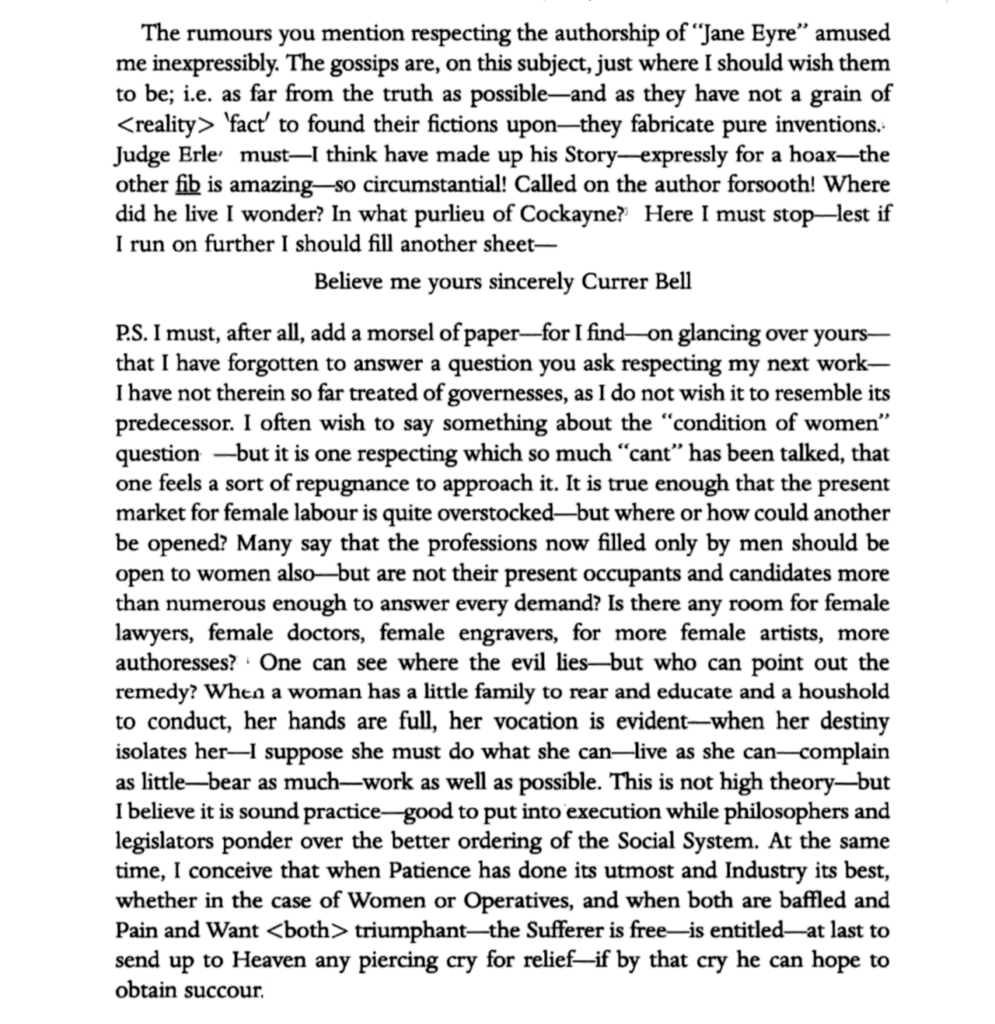
In this letter Charlotte Brontë has laid down the essential qualifications for being a teacher: a fondness of children, a sympathy for them, and a desire to impart knowledge to them. In her series of letters known as the Roe Head journals we see that Charlotte Brontë had very little patience with her pupils or sympathy for them. Charlotte also argues against government plans to bring in minimum educational standards for governesses, arguing that to be successful it is not more knowledge that they need but “self-control, endurance, fortitude, firmness.’
Perhaps the most remarkable section of this long letter by Charlotte Brontë comes in its final section. In this we see an echo of the letter poet laureate Robert Southey had sent many years before; this time it is Charlotte herself who asks if there is room for more female doctors, lawyers, artists and authoresses when many men are struggling to find a role in those professions? Charlotte’s sentence “when a woman has a little family to rear and educate and a household to conduct, her hands are full”, could have come straight from Southey’s quill. We have to rememver that whilst Charlotte was a literary genius of the first order she was also a woman of her time.
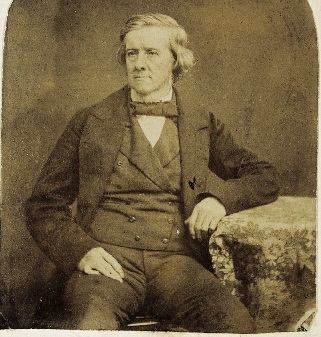
I’m not sure if my posts impart knowledge or “influence young minds”, but I hope you enjoy them and I hope you can join me next week for another new Brontë blog post.
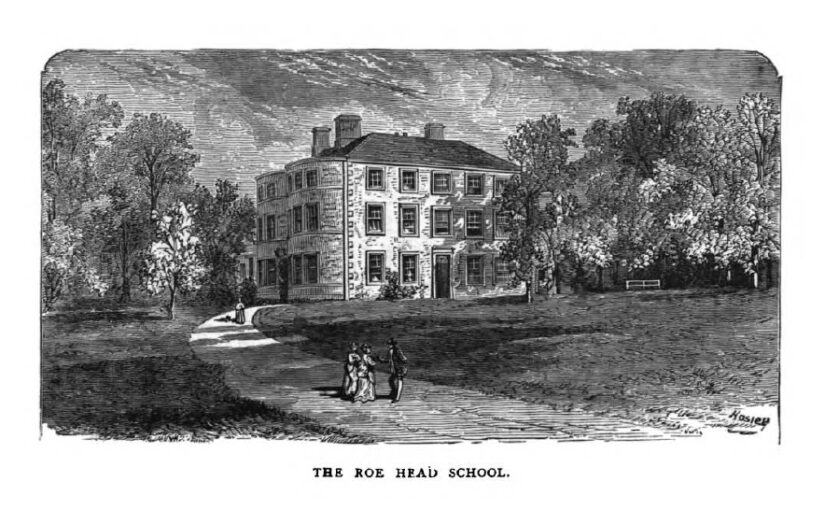
Fascinating letter. When I think of the Brontës as governesses or teachers I always remember the proposed school they would have started at home, and try to imagine little girls arriving with their towels and spoons – would the Reverend still shoot his pistol every morning? Would Branwell have been in the building? What novels would one of these children write in 1866? Thank you for posting this wonderful letter
The letter gives great insight into Charlotte’s feelings. She really struggled in the role of governess. When you think that like most governesses she would have the subject knowledge, but no training in teaching techniques, different learning styles, etc. then it must have been hard. I’m sure she realised that knowing your subject and being able to impart learning are two different things.
The Bronte sisters seem to have rarely mixed with other children when they were younger apart from the relatively brief periods that the girls went to school – they had no relations in the area, so no cousins of a similar age. Perhaps it was different for Branwell, who had friends in Haworth and as a boy had more freedom than his sisters. Generally, the sisters were self-sufficient in their own family life – so Charlotte probably had little experience before beginning her teaching career and she always seems to have had problems in being able to relate to the children she taught.
PS: Thank you so much for all your posts, they do indeed “impart knowledge and influence young (old?) minds” and always give me food for thought.
Have a good week.
‘Doubt and fear’ Charlotte writes and one striving to do one’s best may inherently not attain their self-expected standard. Or, is Charlotte over-thinking the role? Were those engaging governesses seeking primarily a child minder but one smart enough to ‘fit in’ with the family. She mentions daily governesses receiving a better rate than that of the resident governess, she stipulates, does much for just £20 per annum. I do not recall knowing that she had researched that figure and how accurate it generally was. Was Charlotte just in the wrong job for her?